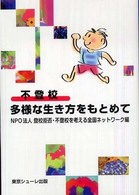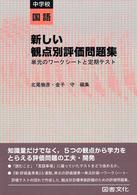Full Description
As the Cold War came to a close in 1991, US President George H. W. Bush famously saw its shocking demise as the dawn of a 'new world order' that would prize peace and expand liberal democratic capitalism. Thirty years later, with China on the rise, Russia resurgent, and populism roiling the Western world, it is clear that Bush's declaration remains elusive. In this book, leading scholars of international affairs offer fresh insight into why the hopes of the early post-Cold War period have been dashed and the challenges ahead. As the world marks the thirtieth anniversary of the collapse of the Soviet Union, this book brings together historians and political scientists to examine the changes and continuities in world politics that emerged at the end of the Cold War and shaped the world we inhabit today.
Contents
Introduction Fritz Bartel and Nuno P. Monteiro; Part I. Sources of Continuity and Change: 1. Overcoming stagnation: global finance and the search for 'New Thinking' on the end of the cold war Fritz Bartel; 2. Mikhail Gorbachev: the anatomy of new thinking Sergey Radchenko; 3. Peace through strength and quiet diplomacy: grand strategy lessons from the Reagan administration Simon Miles; 4. 'Keeping them well behind': the United States, Soviet decline, and the shape of European security at cold war's end Joshua Shifrinson; 5. Only one way forward: the Chinese communist party and the rupture of 1989 Julian B. Gewirtz; Part II. Continuity and Change across the 1989/91 Divide: 6. The nuclear age: during and after the cold war Robert Jervis; 7. Legitimating primacy after the cold war: how liberal talk matters to US foreign policy Stacie E. Goddard and Ronald R. Krebs; 8. Russia's rejection of liberal politics: Marxist critiques of Trotsky and Fukuyama Chris Miller; 9. Continuity and change in Russian grand strategy Michael Kofman; 10. The stickiness of strategy: Soviet and Russian nuclear doctrine Kristin ven Bruusgaard; 11. Avoiding the limelight: Deng Xiaoping and China's policy toward the United States, 1989-1991 Yafeng Xia; Part III. Toward a New World Order?: 12. Great powers and the spread of autocracy since the cold war Seva Gunitsky; 13. Seeds of failure: the end of the cold war and the failure of the Russian democratic transition and western integration Daniel Deudney and G. John Ikenberry; 14. The United States and NATO after the end of the cold war: explaining and evaluating enlargement and its alternatives James Goldgeier and Joshua Shifrinson; 15. The historical legacy of 1989: the arc to another cold war? Mary Sarotte; 16. Requiem for a cold war: America, Russia, and the muslim world 1985-1993 Douglas Little; 17. After primacy: exploring the contours of 21st century great power rivalry Rebecca Lissner, Mira Rapp-Hooper, Don Casler and Laura Resnick Samotin; 18. World order across the end of the cold war Nuno P. Monteiro.








